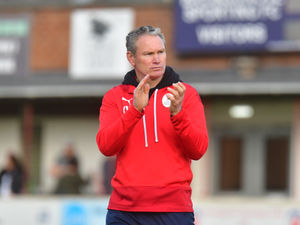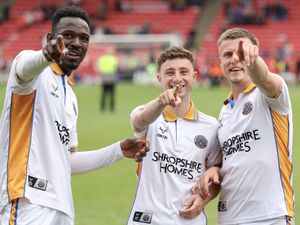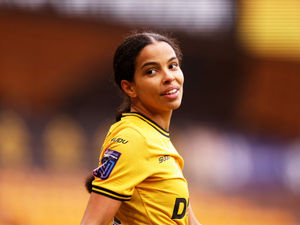Johnny Phillips: Calm Graham Potter is setting an example in midst of red-faced angry management
Anger management or managing to be angry, it has been a tough few days for Graham Potter.
But it will be hard to find a more erudite and measured response to a press conference question than the one given by the Chelsea manager this week.
Potter is a breath of fresh air. It has been hard going at Chelsea this season and who knows what the future holds, but the composed dignity with which he goes about the job is to be admired.
This week’s baffling question, which Potter handled so eloquently, stemmed from last weekend’s 1-1 draw at West Ham when Tomas Soucek got away with a handball in the Hammers penalty area and Chelsea were denied a penalty.
Potter did not publicly get worked up about the decision in his post-match press conference, instead calmly diverting attention away from the blame game.
“I wish he was more angry,” bemoaned Danny Murphy on Match of the Day later that evening.
Murphy was joined by other pundits, who seemed irked by Potter’s lack of fury.
Why? What good would it have done?
Would VAR have awarded the penalty if Potter had gone hopping up and down the touchline like (to lend from the title of an old Lincoln City fanzine) a deranged ferret?
Would Chelsea have retrospectively been awarded all three points if Potter had bleated about the officiating in his post-match press conference?
Ahead of the midweek defeat to Borussia Dortmund, the Chelsea boss was asked if he ever gets angry. With a stroke of his beard and a glance into the middle distance, Potter resisted any urge to walk out of the room and instead responded with patience.
“Of course I get angry, I’m a human being just like you,” he reflected. “It’s just that I choose to conduct myself the way that I think is the right way… I have a responsibility to myself, Chelsea and the game to react in the way that I think is right for me.”
Football is full of angry.
Angry managers stalking their technical areas full of histrionics and intimidation towards the fourth officials.
Angry players haranguing match officials.
Angry amateurs doing exactly the same on parks pitches towards volunteer refs paid 20 quid expenses for the privilege.
Angry parents bawling incoherent tactical advice from the sidelines to confused seven-year-olds at youth football matches up and down the country.
Angry supporters frothing expletives every time an opposing player wanders over to take a corner.
At least they turn up to the game, rather than the angry self-styled fans building their social media platforms, angrily spitting out their watch-along abuse, glued to television coverage for likes and angry subscribers while keeping one eye on their laptops to check their reactions look angry enough.
Angry is everywhere and it’s not helping anyone.
Potter is not just an example to the other head coaches in the Premier League, many of whom become involved in needless confrontations with their agitated gestures and souped up testosterone levels.
He is an example to the sport as a whole, which could probably do with a reset when it comes to behaviour at all levels of the game.
In mid-January, the Surrey county FA posted an alarming chart on its Instagram page. It detailed the discipline issues for the 2022/23 season so far.
With barely half the season completed, 229 misconduct charges had been issued, 109 of them at youth level, with a further 31 against spectators.
There had been 18 threats to referees and 11 charges of abuse towards referees under the age of 18. In all, 25 matches had been abandoned.
So, yes, let’s all get a bit angrier.
Maybe some managers feel the need to get angry simply because it looks better.
It is one of the stranger demands of professional football that being seen to care is regarded as very important in the eyes of some pundits and supporters.
Almost as if managers can be excused any lamentable strategies or ill-considered substitutions so long as they are excitedly barking out orders and swearing at the fourth official.
Meanwhile, the restrained coach sat in his dugout, observing the events in front of him, is often considered aloof or distant, not passionate enough, not wanting it enough.
Potter, with his serene demeanour, has similar traits to Bob Paisley, one of English football’s most successful managers.
In nine years at Liverpool, Paisley’s calm and softly-spoken approach brought six league titles, three European Cups, one UEFA Cup and three League Cups.
Paisley deliberately spoke quietly to his team to ensure everybody had to make an effort to listen.
He followed Bill Shankly in the job and his approach was very different to the Scot, who was no shrinking violet.
Paisley was never going to imitate his predecessor.
“You’ve got to be yourself,” he once said, “and if at the end of the day it’s not good enough then you’ve just got to accept that.”
Potter comes across as a man cut from similar cloth when it comes to behaving with dignity.
He pointed out in midweek that he has risen from managing in the ninth tier of English football to the Champions League.
In doing so he has stayed true to his values and principles.
Performative displays of anger are for others.





